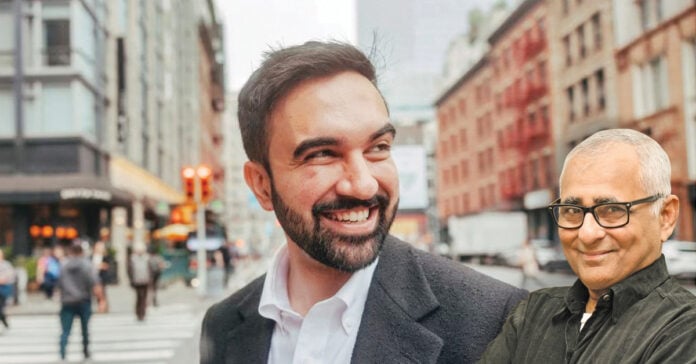By Inderjit Badhwar
This week’s cover story isn’t just about an election—it is about a restoration of faith. In an era defined by noise, fear, and fatigue, America has chosen clarity. The 2025 mid-term elections, now etched in history as the moment democracy refused to be bullied, remind us that civic courage still lives in the hearts of ordinary people.
When voters in New York City elected Zohran Mamdani—a young, Ugandan-born, Indian-rooted Democratic Socialist—as their next mayor, they didn’t just vote for a man. They voted for a mirror of the modern American mosaic: diverse, compassionate, and self-aware. His victory, achieved in the face of hate speech and disinformation, isn’t merely symbolic—it is generational. It signals that the torch is passing, not to another insider, but to an outsider who believes leadership begins with listening.
Across the country, similar stories unfolded. In California, voters said “no” to gerrymandering. In Pennsylvania and Texas, parents reclaimed school boards from extremist groups. In Mississippi, Black voters and their allies broke a decades-old super majority. The tide is turning—not with shouts of revolution, but with ballots of resolve.
For too long, politics has been a contest of outrage. The “Make America Great Again” (MAGA ) movement built its identity on perpetual grievance—on the idea that cruelty was authenticity and chaos was power. But chaos is not power. It is decay. And this election proved that Americans, across demographics and geographies, can distinguish the two.
What we are witnessing now is the reawakening of a democratic instinct: that the vote is not just a right, but a responsibility.
Mamdani’s campaign thrived on that idea. His volunteers weren’t cynics or party operatives; they were teachers, nurses, delivery drivers, students—citizens who remembered that change begins in community. They didn’t wait for Washington to fix things. They fixed their neighbourhoods, one conversation at a time.
It is tempting to treat this as a partisan victory. It isn’t. It’s a moral one. For years, Americans have been told that empathy is weakness, that compromise is betrayal, and that compassion is naïve. Yet, this election told another story: empathy wins. Not always quickly. Not always cleanly. But inevitably.
The work ahead is immense. Gerrymandering remains a national cancer. Disinformation will metastasize again before the 2026 races. But for now, it is worth pausing to breathe—to recognize that millions chose the harder path of hope.
In a time when leaders often talk at us, Zohran Mamdani talked with us. That distinction matters. It is how democracy survives—not through slogans, but through dialogue.
So yes, democracy stumbled. It got bruised. But as this election showed, it hasn’t forgotten how to stand.


